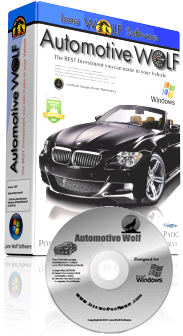|
Performing a tune-up on a car involves a
series of maintenance tasks aimed at optimizing the vehicle's
performance, fuel efficiency, and reliability.
The frequency of tune-ups for cars has changed over the years due to
advancements in automotive technology. Modern vehicles are designed
to require fewer traditional tune-up services compared to older
models. However, it's still important to perform regular maintenance
to keep your car in optimal condition.
Instead of a one-size-fits-all approach, it's
best to consult your vehicle's owner's manual for
manufacturer-recommended maintenance schedules. The manual will
provide specific guidelines based on the make, model, and year of
your car. Generally, newer vehicles require tune-up services less
frequently, typically ranging from 30,000 to 100,000 miles (48,000
to 160,000 kilometers) or every 2 to 5 years.
Here are some common tasks involved:
1. Replace spark plugs: Spark plugs ignite the fuel mixture
in the engine's cylinders. Over time, they can wear out and affect
engine performance. Replacing them at the recommended interval
improves fuel efficiency and ensures smooth operation.
2. Replace ignition coils: Ignition coils generate the high
voltage needed to create sparks in the spark plugs. If a coil fails,
it can cause misfires or poor engine performance. Replacing faulty
coils can restore proper ignition and engine operation.
3. Replace air filter: The air filter prevents dirt, dust,
and debris from entering the engine. A dirty or clogged air filter
restricts airflow, reducing fuel efficiency and engine power.
Regularly replacing the air filter helps maintain optimal engine
performance.
4. Replace fuel filter: The fuel filter prevents contaminants
from reaching the fuel injectors or carburetor. Over time, the
filter can become clogged, reducing fuel flow and potentially
causing engine issues. Replacing the fuel filter at the recommended
interval helps ensure proper fuel delivery.
5. Check and adjust timing and idle: Timing refers to the
precise synchronization of the engine's valves and pistons. Proper
timing and idle adjustment contribute to smoother running, improved
power delivery, and fuel efficiency. Adjustments may require
specialized tools and knowledge, so it's best to consult a
professional if you're unsure.
6. Inspect and replace worn belts and hoses: Belts and hoses
play crucial roles in the engine's operation, such as driving the
alternator, power steering pump, and cooling system. Over time, they
can deteriorate and become susceptible to cracks, leaks, or
breakage. Regular inspection and replacement when necessary help
prevent unexpected failures.
7. Perform oil and filter change: Regular oil changes are
vital to keep the engine properly lubricated and prevent excessive
wear. Changing the oil filter at the same time helps ensure clean
oil circulation and optimal engine protection.
It's important to note that the specific tasks and their intervals
can vary depending on the vehicle make, model, and manufacturer
recommendations. Consulting your car's owner's manual or seeking
professional advice can provide the most accurate information for
your specific vehicle. |





